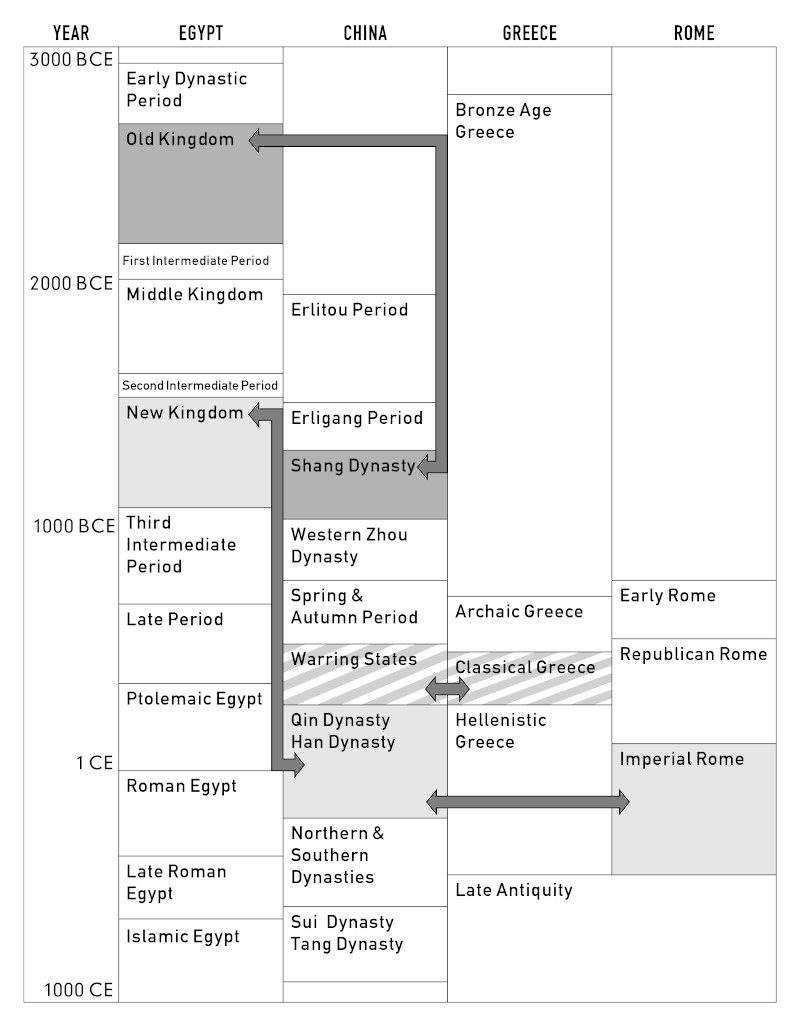The ancient civilizations of Greece and China, both of which were independent of each other, share several similarities and differences, with the geography and climate of both nations shaping their cultures. Greece’s primary political unit was the city-state, while in China, a centralized bureaucracy with an emperor at the top ruled. In terms of religion, Greek beliefs centered around polytheism, while Confucianism, Taoism, and Buddhism dominated in China. The art and architecture of both civilizations were vastly different, with Greek art primarily focusing on the human form, while Chinese art emphasized yin and yang. Finally, both contributed significantly to the advancement of science and technology, with China’s economy being more advanced than that of Greece.
Ancient Greek Civilization vs. Ancient Chinese Civilization: A Comparative Analysis
The ancient civilizations of Greece and China are among the most fascinating and influential in human history. These two civilizations developed independently of one another, but they share many similarities and differences. In this comparative analysis, we will examine the key features of ancient Greek and Chinese cultures and highlight their similarities and differences.
Geography and Climate
The geography and climate of both civilizations played a significant role in shaping their cultures. Greece is a peninsula located in the Mediterranean, characterized by a mild climate with hot summers and mild winters. In contrast, China is a vast country with diverse geographical features, ranging from mountains and deserts to plains and river valleys. The climate of China is also diverse, with colder winters in the north and tropical summers in the south.
Government and Political Structures
The government and political structures of ancient Greece and China were vastly different. In Greece, the city-state, or polis, was the primary political unit. Each city-state had its own government and constitution, with a Council of Elders and an assembly of citizens who made decisions. In contrast, China was ruled by a centralized bureaucracy with an emperor at the top. This bureaucracy was composed of different levels of officials who administered the empire.
Religion and Philosophy
Religion and philosophy were crucial elements of both ancient Greek and Chinese cultures. In Greece, polytheistic beliefs dominated, and the gods played a critical role in daily life. Greek philosophers such as Socrates, Plato, and Aristotle emphasized reason and logic in their philosophical writings. In contrast, China was dominated by Confucianism, Taoism, and Buddhism. Confucianism emphasized social order and hierarchy, while Taoism emphasized the natural order of things. Buddhism provided an alternative philosophy that emphasized compassion and the path to enlightenment.
Art and Architecture
Art and architecture were another area where ancient Greek and Chinese civilizations differed significantly. In Greece, marble sculptures were widespread, and the human form was idealized in art. Architecture emphasized symmetry and order, with the Doric, Ionic, and Corinthian styles being the most prevalent. In contrast, Chinese art and architecture emphasized the natural world and eternal principles of yin and yang. Jade sculptures and landscapes were prominent artistic forms, and architecture relied on wooden structures with pagoda roofs.
Science and Technology
Ancient Greece and China were both instrumental in the advancement of science and technology. In Greece, famous mathematicians such as Euclid and Pythagoras pioneered mathematical concepts, while astronomers such as Hipparchus made significant contributions to the study of the stars. In China, advancements in science and technology were numerous, from the invention of paper and gunpowder to significant contributions in medicine and agriculture.
Economic Structures and Trade
The economic structures and trade practices of ancient Greece and China differed significantly. Greece relied on agriculture, trade, and slavery, while China’s economy was highly advanced, with a sophisticated system of currency and trade. The Silk Road was a critical trade route that connected China to other parts of the world, facilitating the exchange of goods, ideas, and culture.
Conclusion
This comparative analysis has highlighted the similarities and differences between ancient Greek and Chinese civilizations. Although these civilizations developed independently, they share several commonalities, such as a strong emphasis on philosophy and the advancement of science and technology. However, they also differ significantly in areas such as government and political structures, religion, art, and trade practices. Studying these civilizations helps us understand the diversity of human cultures and their contributions to our collective history.
